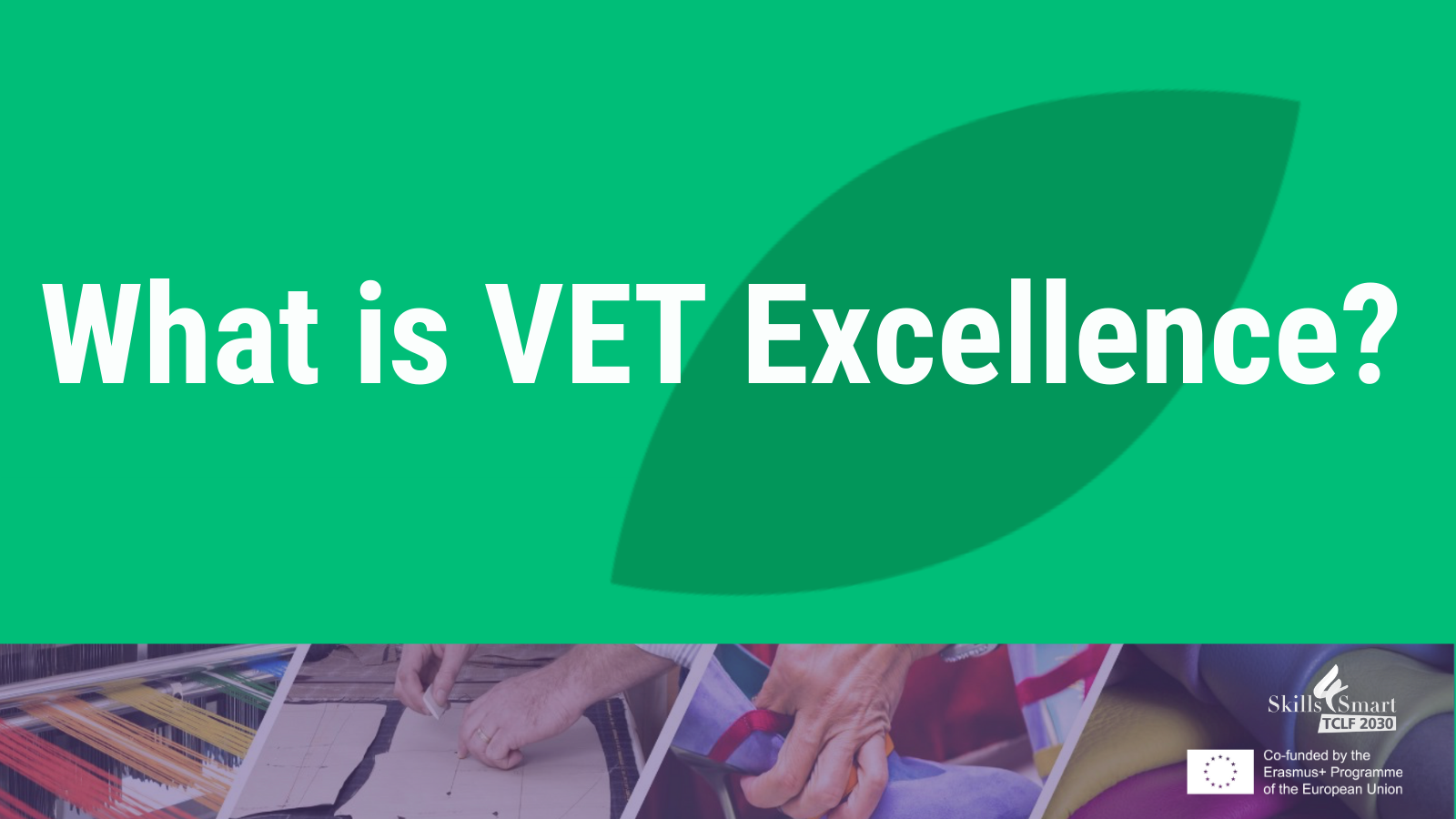The term “Excellence” is a broad concept which has been used for decades in relation to education to underline talent, engagement, and a striving for continuously improving education systems.
During late 2018 and early 2019, the European Commission’s Education and Training 2020 Working Group, affiliated to the Directorate General for Employment, Social Affairs and Inclusion, conducted an exercise to present and delineate the new concept of Centres of Vocational Excellence and their main characteristics. This report, titled Mapping of Centres of Vocational Excellence was published in October 2019. In this report, VET Excellence is described as a set of activities and a general approach to VET that “go beyond what VET would normally be expected to do”. What does it mean exactly?
VET providers practicing VET excellence usually exceed the traditional provision of initial VET (iVET). They not only have a strategy that aims at meeting the needs of the labour market, but also fosters societal developments and lifelong learning plans. With market needs in continuous evolution, VET Excellence also means having a long-term, proactive approach that anticipates skills needs and challenges, an essential component for successful and sustainable industries. This can for instance be achieved via VET’s contribution in the drafting and implementation of regional development and innovation strategies.
There is no closed definition of VET Excellence, and it can materialise according to different perspectives. For instance, the unique mix of activities that characterises VET Excellence can imply developing and/implementing innovative teaching and training methodologies, especially those based on digital technologies (e.g. MOOCs, online platforms, innovative teaching and learning methods) or project-based learning. E-learning has proved to be an effective way of improving the quality of teaching and learning in VET schools and a successful alternative in challenging times when traditional learning is not possible. In addition, project-based learning enables VET learners from different fields of study to develop innovative solutions to real work problems which could contribute to the creation of new knowledge.
Excellence in VET is also represented by a modus operandi based on solid and reliable partnerships between the many stakeholders that make up VET ecosystems at regional and national level. Fruitful collaborations and knowledge exchanges can, for example, result from regular participation in innovation hubs, technology diffusion centres or business incubators.
Furthermore, Excellence in VET translates into successful international partnerships. Strengthening and scaling-up such international partnerships means developing advice and guidance on the implementation of internationalisation strategies, interchange of students and/or teachers, and of trans-national joint curricula and international campuses.
In brief, the report of the EC 2020 working group on VET elaborates the main criteria to recognise VET excellence. Excellence in VET means (1) being a proactive player with systematic approaches to engaging with local and regional agendas for sustainability and social and economic development; (2) having two-way reciprocal exchanges with stakeholders, based on partnerships; (3) using sustainable funding models involving strong and reliable stakeholder contributions; and (4) ensuring integration of activities, especially between research and teaching and learning.
Through its Network of European TCLF VET providers promoting Excellence, the S4TCLF project and its partner VET providers will actively work together to create such solid and reliable partnerships and further promote Excellence in VET, making the TCLF industries more attractive to new talents and bolster the industries’ success and competitiveness in Europe.
Paul Lasserre – CEC


